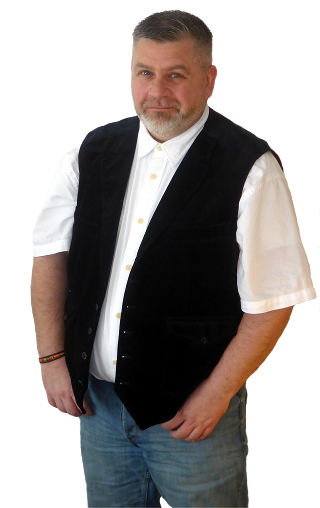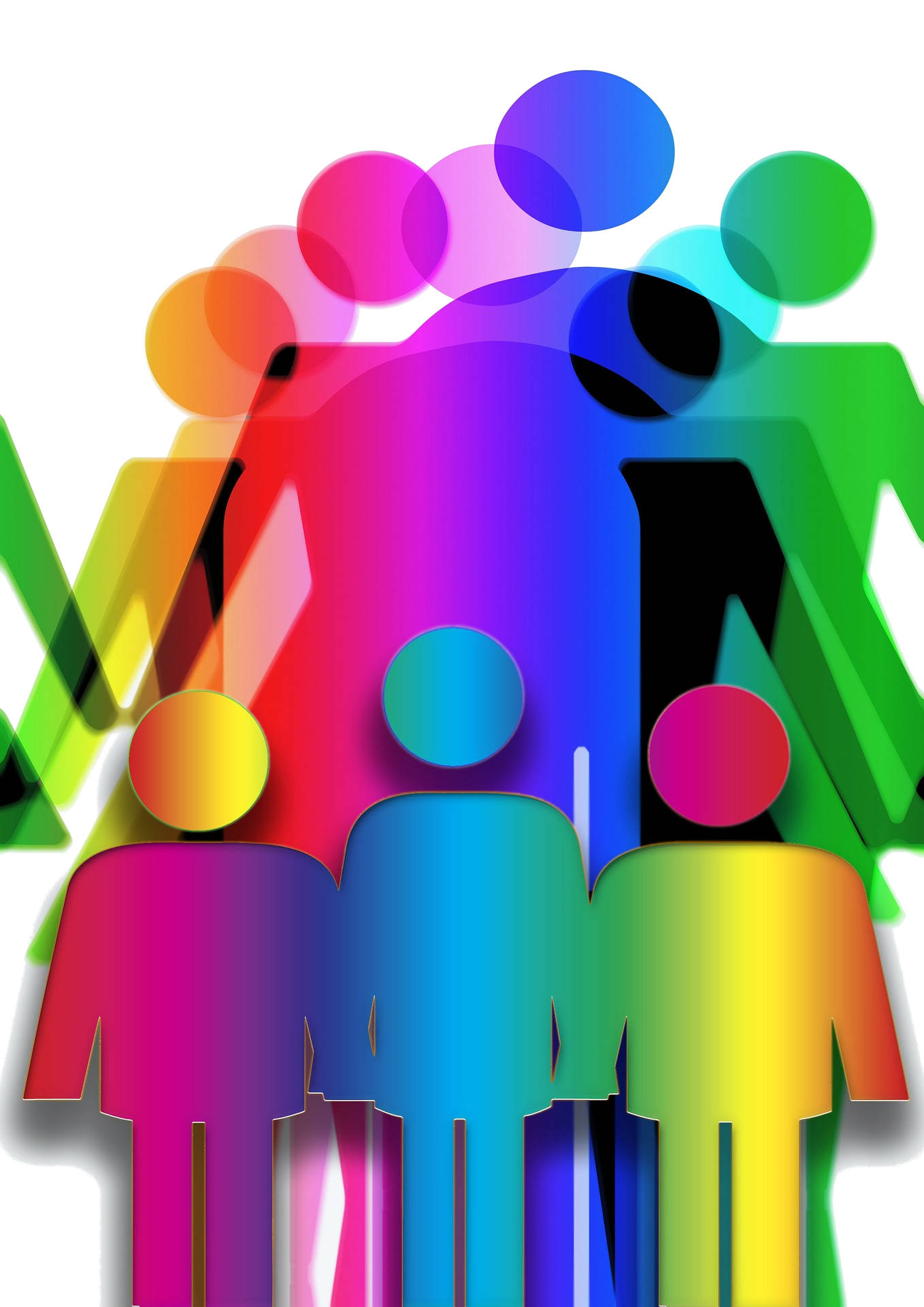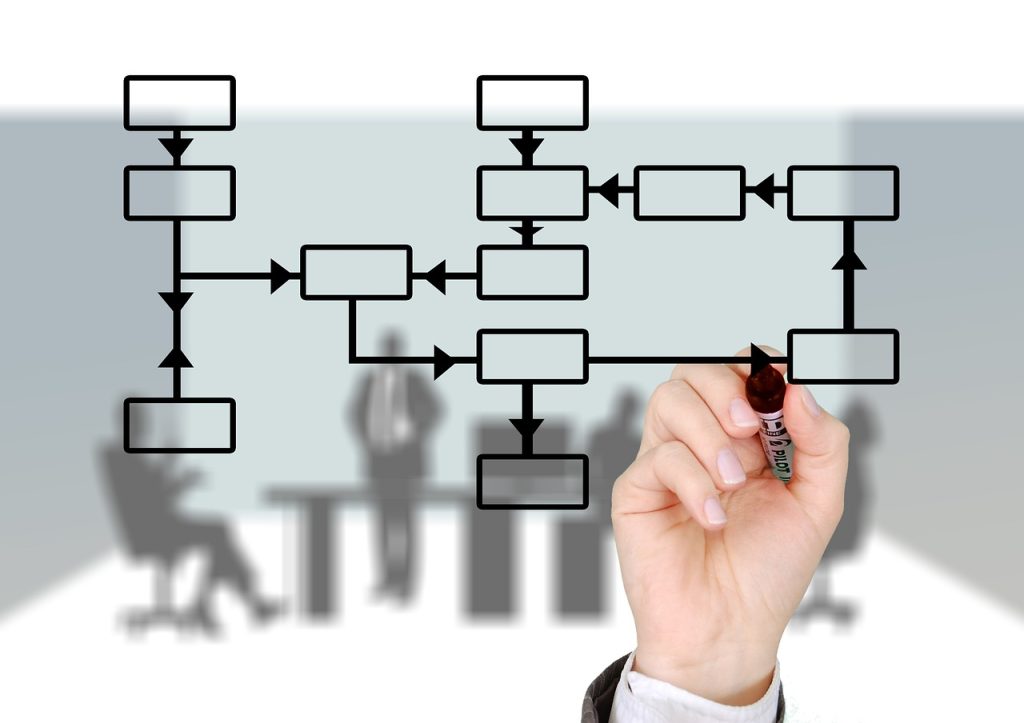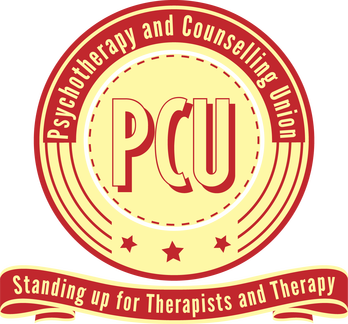
Throuple Counselling: LGBTQ+ Trios in Crisis
Online Video Counselling for LGBT /QIA+ Throuples! Working with a throuple-ally therapist, what does relationship counselling for committed trio relationships aim to achieve? Let's talk about Gay, Lesbian, Bi, Queer, Straight and mixed-orientation intimate "threelationships" working with a Relationship Therapist. How we support your intimate, open and/or ethical non-monogamous throuple in developing its own helpful, cause-identifying and conflict-addressing behaviour...Is Throuple Counselling for You?
Just like any relationship. throuples (sometimes spelled: “thruples”, aka triads, trios, threelationship, ménage a trois: where three people are in a committed and/or intimate relationship) need bespoke, professional support from time to time, too.
In online video counselling for throuples, we’re concentrating on the issues between you and one or more of your partners to assist you in developing your own effective approach to tackle conflicts; to empower you to resolve difficult problems and crises, both now and in the future.
Whether you’re a gay throuple, a lesbian throuple, or a throuple made of mixed gender identities with (some!) common sexualities, when it comes to a relationship made up of three individuals, it makes no difference what kind of relationship setup you’re committed to. You could be a member of a well-established triad. You may have started dating someone whose relationship philosophy included non-monogamy; you may be thinking about expanding your relationship from a couple to include a third; or you and your partner met someone new one day, and you may now be struggling to accept a newcomer into your relationship. Perhaps two of your partners are in conflict, and you’re feeling helpless as a judge, jury, and mediator.
Counselling for Throuple Relationships can effectively assist you in helping yourselves, empowering all three of you in resolving relationship conflicts both now and in the future.
Professional Support for Triad Relationships
The difficulties I outlined above, which you are currently dealing with, may benefit from professional assistance.
Maybe you’ve already searched Google for “ally LGBT counsellors who work with throuples”, but the websites you found were not very clear about whether the therapist worked with your distinct form of intimate relationship; nor if they helped with this important matter.
Online Throuple Relationship Counselling with Dean Richardson MNCPS (Accred/Reg) is a form of integrated couple/group counselling that acknowledges and respects three people as equal partners. The therapeutic approach, applied by Dean, aims to assist your partnership discover conflict reasons and put into effect behaviour that will help you resolve them.
It’s helpful to know that Dean has more than 24 years counselling experience, and is the experienced bloke that you’d consult with when you and one or more of your partners want to work through difficult relationship matters to a satisfactory resolution.
Why Consider Throuple Counselling
This is not a complete list of reasons to consider throuple counselling, but it might help you recognise areas in your throuple-relationship that counselling could help with:-
- Your partner, you or both of you introduce the idea of inviting a third partner into an existing couple relationship.
- As a single individual, your new love-interest is already in a couple relationship (with his/her/their partner aware of your existence).
- Someone new is introduced into an established couple’s relationship, and this generates some conflicts and bad feelings such as jealousy.
- Struggles to balance individual needs: whilst attending to two partners takes some effort and skill, the individual may sometimes be neglected by their two partners.
- The relationship is suffering from external judgement based on their impression of what is “normal”.
- Someone wants to leave an established throuple.
- Your throuple experiences a life-changing event (illness, a new birth, a career change, retirement, a location move etc), and the throuple is struggling to cope with the change.
- The relationship is struggling with social and/or intimacy skills among some or all three members.
- Two or three partners are failing to communicate well.
As with any relationship, it is essential for the members of a throuple to communicate openly, be understanding of each other’s needs, and work together to find solutions to their challenges.
Seeking professional counselling or relationship therapy can also be beneficial for navigating complex issues.
Taking Things One Step at a Time
An overview of how LGBT relationship counselling works, starts with encouraging curiosity…
- Curiosity (initiated through Counselling)… leading to → New Information.
- New Information… leading towards → New Options.
- New Options… leading towards → Negotiating / Making New Choices.
- New Choices… leading towards → Transforming the Relationship (through informed empowerment).
- Transformation Underway… the partners are developing affective behaviours that address relationship conflicts (and may choose to leave counselling).
Curiosity allows us to discover new knowledge. New information provides us (and our partners) with new possibilities, which leads to us making some new (or newer) relationship decisions. When new decisions are made, the behaviour of the partnership can begin to change. When the partners' relationship is much more under their own management (again), they will recognise it's time to leave counselling.
Your Triad Relationship is a (Sometimes Complex) System
Systemic therapy (read: “How a Relationship Counsellor Thinks”) can be an effective approach when dealing with poor relationship behaviour. We will be using a systemic approach to work together, and we’ll learn what contributes to the relationship’s “system” going wrong.
We will gain valuable information by focusing on the relationship’s behavioural patterns and dependencies (i.e. things that bring joy, flaws, and faults). With new information comes choices, and the potential for change.
Everyone in the relationship is connected to everyone else (and to everyone else’s relationship within the throuple – aka two partners’ relationship connects to the third partner, and so on); therefore, each person affects and can be affected by others’ behaviours. Counselling that integrates a systemic approach – such as that employed by Dean Richardson MNCPS (Accred/Reg) – works to understand the relationship’s interconnections and dynamics. Successful counselling assists individual partners in learning about, and changing, potentially harmful communication and behaviour so that throuple relationship improves.
Every Session Provides…
Different relationship counsellors work in different ways.
Dean's core approach is the integration of psychodynamic and systemic theoretical models (along with whatever is helpful, to be honest!). But let's give you a more plain-English overview of what each counselling session can provide for you.
- A complete 50-minute session (or 90 minutes for throuples and groups) that begins on the hour, will not start late, and ends at a consistent and predictable time.
- Over 24 years of therapeutic skills including: reframing of subject matter that can bring comprehension, behavioural interpretation, identification of unconscious processes (projection, splitting, etc), insightful comments, observations, active listening, and knowledge of LGBTQ+ relationships that can help you make informed choices around relationship change.
- Non-judgement respect for this being your distinct relationship, avoiding diagnoses, pathologising, and prescribing to you: "how a normal relationship would deal with this is..."
- Techniques and approaches that can help all partners confront, halt and transform unhappy behaviour.
- Unlimited opportunities to contribute your own ideas, suggestions and hypotheses.
- Unlimited opportunities to gain new knowledge and comprehension about their partner's (and their own) behaviour and motivations in the context of this relationship.
- Unlimited homework opportunities: to discuss, plan and design your own homework in between sessions.
- The same counsellor every session, so that the connection you build with Dean can become dependable and trustworthy.
- Weekly appointments scheduled for the same day and time (excepting planned holidays), giving you the flexibility to manage your personal schedule without squeezing-in future counselling sessions.
- A professional facilitative approach that can assist you and your partner(s) in identifying your own problems, interrupting faults, and putting in corrective behaviour. A strategy you can use and re-use for years to come.
- A therapist who listens for the problems that your relationship cannot hear and who maintains a neutral position (e.g. does not take sides).
- Reliable and containing boundaries - whether it's as simple as time keeping or more complex such as distressing subject material.
- Flexible and dynamic outcomes - your goals at the beginning of our work together may change over time. We will manage whatever new matters your relationship needs to attend to.
- Helpful support during distressing and emotional times.
- Support in finding ways to bring the counselling work to an end. We can stop our work at any time, and discussing this with your counsellor can help find creative ways to plan for the partners to continue their work.
A Nonnormative Approach to LGBTQ+ Throuple Relationships
Dean is a fully qualified and experienced relationship counsellor who works with individuals, couples and groups.
He works in counselling with non-traditional couple relationships, triads (“throuples”), polyamory, non-monogamy (three-or-more-member), open-relationships and more.
Dean does this by employing effective therapeutic approaches that, firstly, make no judgements about how a relationship is supposed to be and, secondly, embrace a nonnormative philosophy.
In short… he won’t refer to “a normal relationship would do this…” when working with you to transform how you’d like your relationship conflict behaviour to become.
Dean will not Define Your Relationship
Compare Dean’s approach with some others that make basic assumptions about what a relationship “is supposed to be” such as some religion-based forms of counselling, where the counsellor takes a prescriptive role: offering advice and instruction based upon their religious doctrine.
- Dean will not prescribe what an imaginary “normal” throuple relationship would be doing, in order for you to reflect on resolving your throuple difficulties.
- Dean will not refer to “what other (implication: more successful?!) relationships like yours would do is…”
Bespoke Relationships Counselling
So the bad news is… throuple counselling is not about meeting with a professional, telling him about your troubles, and then having him instruct you on how to go about fixing things. (Sorry! 🤷♀️)
No, a throuple counsellor is someone who assists and supports the relationship partners in figuring out their own resolutions for themselves. He employs a high level of skill, knowledge, and empathy to achieve this. The therapist recognises and respects the bespoke nature of this relationship and how all three partners relate to each other.
Sure, you may be thinking: “we’ve already tried everything”, but I’d offer to you that a professionally-neutral observer’s input can be worth its weight in gold, revealing things you three had not noticed before and hence discovering approaches that you couldn’t have tried before.
Unlike some other services that attempts to impose a one-size-fits-all or a “manualised” approach to trio-relationship counselling, Dean employs a facilitated approach, working with the group, and its member-partners, to assist them in developing therapeutic interventions that works for their distinct and unique relationship behaviours and needs.
You’ll come away making use of effective tools and interventions that you developed together.
Not only is this approach more sustainable (the throuple develops their own resolutions to their own difficulties), but it also avoids setting the partners’ expectations of meeting with an “Expert” who they hope will provide them with “all the answers”.
So let’s talk about the “science bit” for a second about what makes this such an effective therapy for throuple relationships. Three primary therapeutic theoretical models employed in this approach relationship counselling are:-
-
Systemic (Milan Associates)
A theoretical model that sees a relationships as a linked-system (think: washing machine program: the clothes are washed using a step-by-step approach. Conditioner is not applied until rinse has completed, and rinse does not begin until wash has ended, etc). A system has processes (behaviours that invite us to love our partner), and triggers (things that might kick off an argument). By discovering what kind of systems this relationship employs (intended, accidental, faulty, internal, external) the group and Dean together can gain new knowledge about the relationship. New knowledge leads to discovering opportunities for change.
-
Psychodynamic Psychotherapy
A theoretical model that recognises unconscious processes and the influence of past experiences. Such past experiences (eg early childhood experienced replaying in the moment), experiences of upbringing/parenting, and unresolved experiences looking for a conclusion. Together, the throuple and Dean will discover conflicts that raise their presence, and consider how relationship partners might assist one-another in conflict resolution.
-
Foulksian Facilitative ‘Matrix’
A theoretical approach to groups, how groups operate, how members form multiple distinct relationships within the group, and how to manage such matrices (preferences, jealousy, unresolved irritation, etc.). It aims to explore the underlying dynamics of group interactions by mapping the relationships between group members, facilitating insight, and fostering personal growth. Recognising each partner’s roles, emotions, and unconscious processes within the group dynamic, this approach encourages self-awareness, empathy, and mutual understanding among group members.
One Video Device per Attendee
Dean Richardson has more than 16 years’ practice in Relationship Counselling via Video Conferencing (Skype, Zoom etc). His original focus was working with couples in Long Distance Relationships (i.e. partners being in a different countries to each other would have to use one device each).
As 2019’s pandemic developed, Dean discovered a therapeutically-useful phenomenon about video: partners attending relationship counselling also benefited from using individual devices (i.e. one device each, sitting in different rooms from each other). Partners reported back that the approach gave them a helpful sense of “we’re not at home” during therapy.
An Empowering Approach
This means that Dean’s approach to Throuple Counselling empowers partners to talk with each other, a safe environment, about subjects that cannot be discussed “at home” (or, at least, where they might struggle during the early stages of counselling). Difficult subjects became more accessible due to the use of two video devices (any mix of Smartphones, tablets, PCs, Macs etc available to the couple).
So, as you consider entering throuple counselling with Dean Richardson using Zoom/Skype video, the following Preparations for Video Counselling will be helpful…

Beginning Throuple Counselling
First Session
As an established throuple relationship, one of you will have completed Dean’s contact form on behalf of all the relationship partners.
Having made arrangements for everyone to meet together on Zoom (or Skype etc), during our first session we’ll spend a little time making sure that everyone can see and hear each other and that our cameras, microphones, and screens are working. (In my experience: Zoom tends to be more reliable than Skype when meeting with groups of people in a telehealth session).
- Next, we’ll begin discussing, agreeing, and setting any important and specific boundaries that the group may need (e.g., interrupting others while they’re talking, safety plans, confidentiality, what can be spoken about outside of a group session, etc.).
- We will begin discussions based on how the throuple perceives their relationship problem(s). We may try to prioritise what is to be focused upon in session (higher ranking to lower ranking).
- We will have conversations about the throuple may or may not have recognised the group’s “system” (basically learning who does what and what responses can be to others’ behaviours).
- We will discuss working together – pros, cons, hopes, hears, and we’ll begin to discover what the group suspects may be uncovered by our therapy work.
Subsequent Sessions
Continuing our work, we’ll uncover (in greater detail) what the throuple’s system struggles with (who does what, that triggers who, resulting in someone doing which etc), discovering new information that will lead to new options. Choices for change may come from new options, and we may learn to consider newer ways of behaving in the relationship (to see how conflicts are managed better).
We’ll continue working until the throuple collectively decides they wish to go it alone, helpfully making the counsellor redundant to their needs.
We’ll arrange to say goodbye.
⚠️Might you be looking for Family Mediation?
Counsellors and Mediators have quasi-comparable skills (skills that appear to be the same), which can leave you struggling to decide which professional service might benefit your relationship the most.
Counsellors are not mediators, and mediators are not counsellors. So, in a (very small) nutshell...
- Counsellors are trained/qualified to support parties who wish to reconcile (and may wish to investigate separation), and who need to explore historical problems and more deep-rooted historical issues in their relationship, etc.
- Mediators are trained/qualified to support parties wishing to separate amicably, maintain boundaries in keeping discussions targeted towards the future, mitigate "blaming-behaviour", etc.
About Dean Richardson MNCPS (Accred/Reg)
You could choose any couple / group counsellor…
Given that this will be the most intimate and vulnerable you could feel alongside your partner(s), you would want a skilled professional whose experience and specialism you could trust; whose focus would be upon your distinct relationship. Your couple, throuple or group relationship will be in good hands with Dean. He works from Great Britain, is Independent of "box 'em/shift 'em" therapy services, and identifies as a gay couple counsellor. He's also easily payable in pounds sterling! Dean already had an impressive 16 years actual video "webcam" experience - way before the first British emergency began (when suddenly many counsellors added a Video option to their portfolio, having not practised so previously! 🤔).
What makes Dean Distinct
- Dean is sensitive and effective to your sexuality / gender-identity and intimate ways of relating to each other. You'll discover quickly that Dean is an informed member of your own community.
- Dean demonstrates adept skills with lesbian, gay, bisexual, asexual, fluid, mixed sexuality and same-or-mixed gender relationships having over 24 years' experience as a counsellor.
- Dean avoids taking a the role of "all-knowing expert" (whether requested or projected onto him by the clients). "Experts" tell you what to do, do not learn very well from others, and struggle to adapt to new situations. A couple counsellor must be curious, adaptive, and ask questions from a "not knowing" position so that the relationship in counselling benefits from re-examination.
- Dean speaks plain English (and can swear like a virtuoso if you like, or not at all if you prefer). He works cooperatively with your relationship (no unnecessary silence, or just "hmms...").
- Dean was originally accredited by his first professional body 15 years ago; he is now an accredited registrant with The National Counselling and Psychotherapy Society. Accreditation is a valued recognition of a counsellor's substantial experience. Dean is also a member of the Psychotherapy and Counselling Union of Great Britain.
- Dean is a British Counsellor working from the South of England. Unlike other counselling services operating from abroad Dean is registered, accredited, insured & supervised from within England (not from abroad).

If any of this resonates with you and your partner(s), you should probably meet with the Gay Relationship Counsellor: Dean Richardson MNCPS (Accred/Reg) via Zoom, Skype, Whatsapp and other secure, reliable video conferencing media.
Dean focuses on LGBT/QIA+ relationships as a specialty in therapy. He works with individuals, couples and small groups. Plus, he's qualified to a postgraduate level (Chichester PG Diploma in Psychodynamic / Systemic Couple Counselling, IGA National Foundation in Group Counselling), and works as a private practice counsellor employing 24+ years experience*.
(*Very Important: not all counsellors have such specific skills for working with couples nor groups. Those who are initially trained to use common "Individual" Counselling skills have no experience in working therapeutically with relationships. Such counsellors may try, perhaps out of misplaced goodwill, to employ "individual" techniques (multiplied by 2) but the couple or group will find that the approach is ineffective. Simply put: it's the wrong approach; your relationship is not part of the counsellor's primary theoretical framework. Remember always to ask your potential counsellor: "what qualifies you to work with our relationship?" and trust your instincts based on what you hear.
Contents
- 1 Is Throuple Counselling for You?
- 2 Why Consider Throuple Counselling
- 3 Every Session Provides…
- 4 A Nonnormative Approach to LGBTQ+ Throuple Relationships
- 5 Bespoke Relationships Counselling
- 6 One Video Device per Attendee
- 7 Beginning Throuple Counselling
- 8 ⚠️Might you be looking for Family Mediation?
- 9 About Dean Richardson MNCPS (Accred/Reg)














